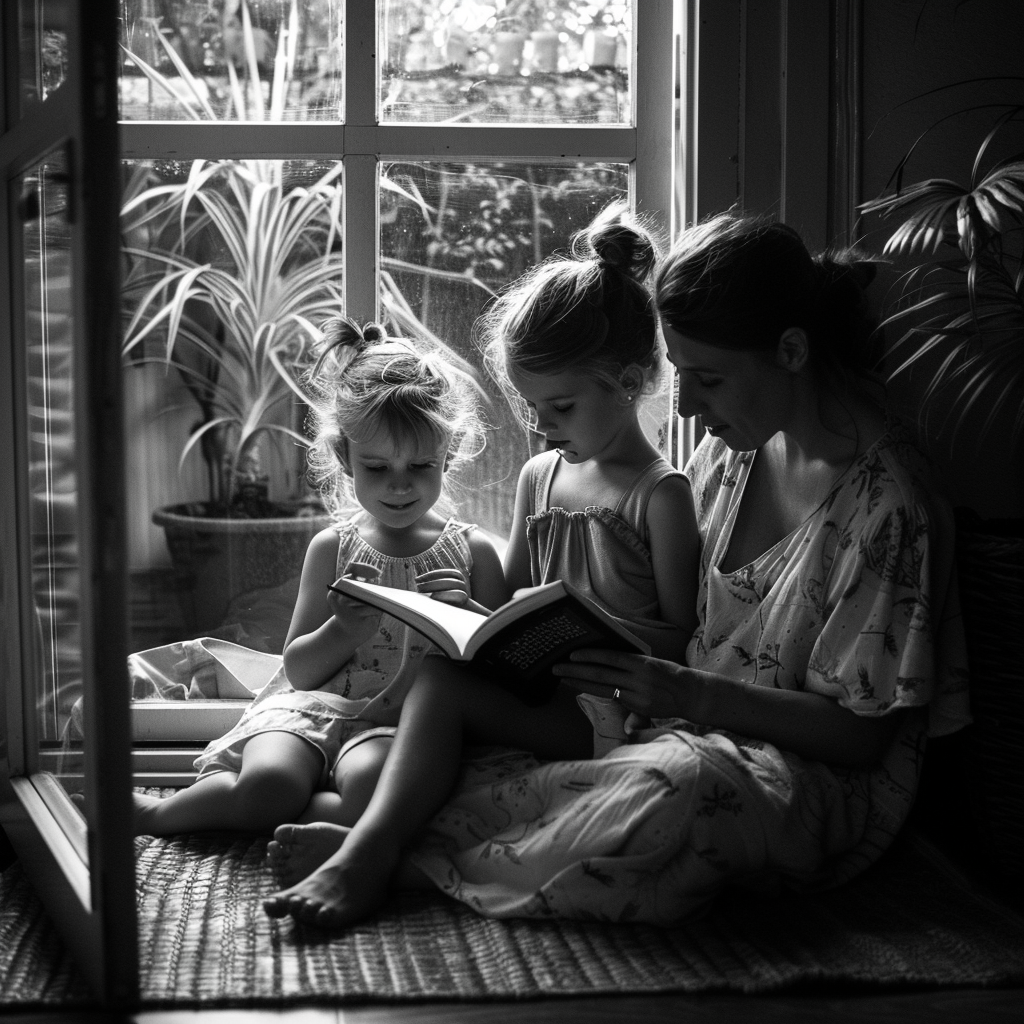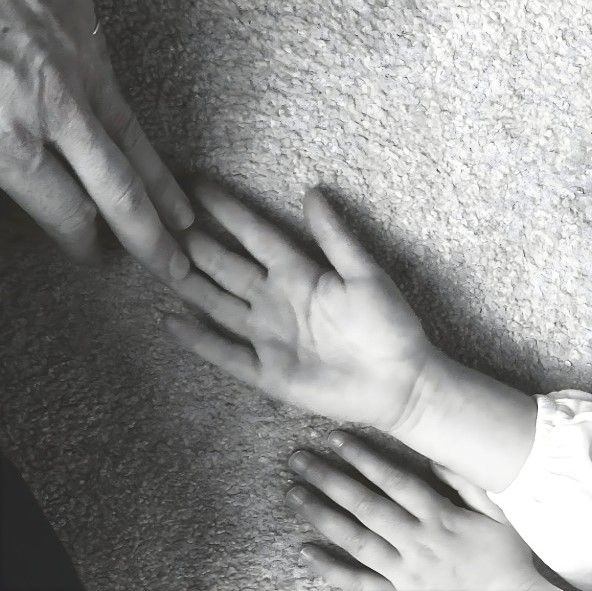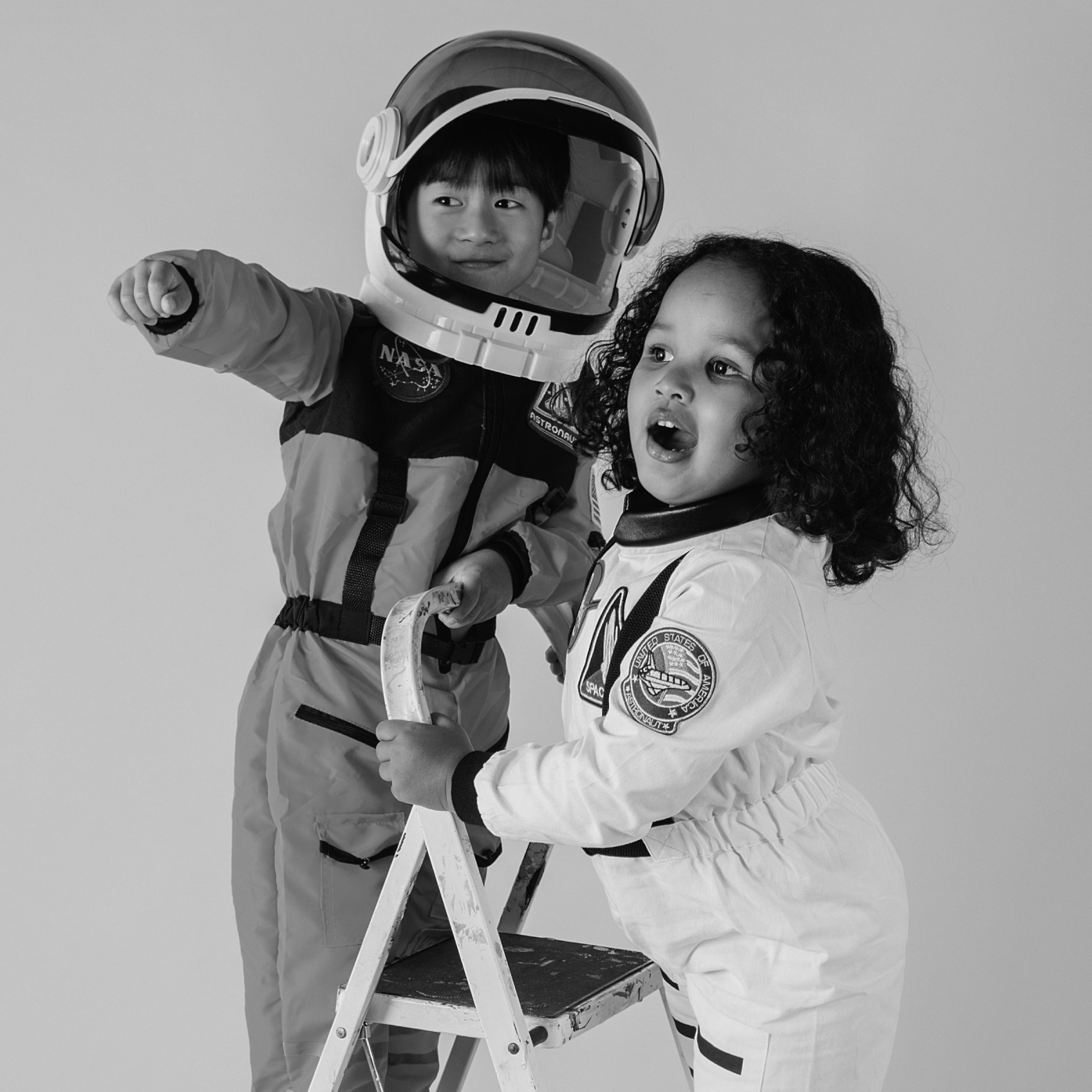
MENU


My daughter loves puzzles. She loves them since she was very young, and I only recently started to carefully observe her attraction to them. I remember the first time we played with a puzzle. We opened it together, and I showed her to first make the borders and then the insides. She seemed to like that approach, and that’s how she would begin the puzzle making, until she found her own way. Today, as a four-year-old, she does a 54 pieces puzzle in 7 minutes. Every day, before going to bed, she takes a puzzle and completes it two or three times in a row; this may relax her, or maybe it is something that she likes to achieve before sleeping. At her school, the teacher told me that she loves the feeling of self-accomplishment, and perhaps a puzzle is the perfect task to feel: “I know what I just did is perfect”.
There are several things that sparked my attention:
She does not do puzzles to get a sticker or a candy. She does puzzles because she loves doing them, she feels rewarded, and she enjoys the process. I often wonder: What would happen if I gave her a sticker or candy once she is done with her puzzle? Would this motivate her even more, or would the treat kill that motivation? Without knowing it and without any external incentive, she is creating the perfect feedback loop1 for learning: 1. Rehearse, rehearse, and rehearse (lengthy consistent training), 2. Repeated prediction – feedback – error correction cycle (feedback and error correction are key components of motor learning), 3. Multi-sensory exercise, the co-activation of circuits from multiple senses (vision and touch), and 4. Learning reward value of what is achieved (if a puzzle is done correctly you know it).
What is my role on all this? Is it to clap my hands when she finishes a puzzle? Is it to discourage her from doing puzzles as it may distract her from learning other things that I believe are more important, like maths or piano?
Or is it to observe and understand when she is ready for a more complex one and provide her the new puzzle at the right time? Is it to accompany her in this passion she has today, that she may not have anymore soon, and help her reach a potential in something she is interested in and loves doing? Can I use her puzzle methodology or approach and help her to expand it to accomplish other things? May I use puzzle pieces to invent new games to reach other skills I think are important for her in the future? Shall we build a robot together that can help her finish her puzzles quicker?
I learned to observe, and this commitment to observing provides me with incredible tools to guide the girls through life. Okmaya, AMI certified Montessori guide with a long and broad experience as a school guide, a home-schooling expert, and a family consultant, once told me: “as adults, observing the interests and abilities of our children and connecting them with elements in their environment that feed this interest and abilities is key to awakening the child’s genuine interest and motivation to action. This connection is the gateway to development and knowledge, simultaneously strengthening self-esteem and the feeling of ‘I am capable’.”
This ability to learn about our children’s genuine interest and motivation hinges on our willingness and dedication to devote time and energy into the art of observation. Dr. Maria Carmen Fons; paediatric neurologist, and the head of the Neurology Department at SJD Barcelona Children’s Hospital, and a mother of two, has mentioned to me: “the biggest difficulty to forming these connections between parents and children may be the fact that parents are constantly overwhelmed, distracted, and bombarded by stimuli.”
In her opinion, and I agree, a critical task for parents and caregivers, is to carve out chunks of time within our everyday life, where the only focus is the children; without interruptions from work, friends, or digital notifications of any kind. The question of how adults can implement and routinise such a sustained attention is something we will come back to again and again on this blog.
Every week, we will post a short blog relating to the concept of attention, the latest scientific developments around it, or our updates about our own progress here at Lifeverse!
 Sign up to the blog
Sign up to the blog
If you have an interesting idea that relates to attention, or if you do research on attentional processes and would like your work to be featured on our blog, please reach out - we are always happy to collaborate with brilliant minds from across fields and disciplines!
 Pitch us an idea!
Pitch us an idea!



Distractions were crucial for the survival of our species, helping us react quickly to potential dangers. However, in today’s world, constant notifications hinder our ability to maintain prolonged concentration. In this article our expert emphasizes Cal Newport’s concept of a “deep life” about the importance of focusing on tasks with minimal distractions, whether it’s work or personal activities.
Our working memory, powered by the prefrontal cortex, is essential for planning, organizing, and reasoning. Despite this capability, we often fall short of our goals due to interruptions like notifications. The author shares a personal experiment of limiting WhatsApp usage to reduce stress and improve presence with their daughters, and highlights the importance of managing distractions to enhance productivity and presence.



On this new post our expert explores the concept of attention from a multidisciplinary perspective, pondering its definition, measurement, and significance. It suggests that attention is akin to love, both for oneself and for others. Attention, when fully engaged, enhances experiences and facilitates deeper understanding.
The article draws parallels between attention and acts of caring, such as listening to loved ones. It argues that true attention is essential for experiencing and expressing love. Ultimately, it proposes that exploring attention is synonymous with exploring the capacity for human love, both self-love and love for others.



This article explores the unique types of attention parents develop, particularly those dedicating substantial time to their children. Identifying two distinct attention modes—focused and rote—the author reflects on the challenges and engagement levels associated with each. Drawing from personal experiences, the author discusses the pursuit of achieving a state of “flow” with one’s children, akin to the immersive state described by psychologist Mihaly Csikszentmihalyi.
The narrative also touches on concerns about diminishing self-regulation in a screen-dominated world, referencing a study’s findings on the impact of screens on children’s self-control.




In this new article our expert reflects on the natural parental fear of their child falling ill and shares a shift in perspective towards sickness. Instead of solely worrying, our expert sees it as an opportunity to listen to their body, be present in the moment, and understand the concept of care.




We shared a personal experience with a five-year-old children, exploring the art of observation and learning through a simple carrot. Embracing Feynman’s approach and impactful lessons from “What Do You Care What Other People Think?”, we aimed to make learning enjoyable and engaging. We highlighted the significance of understanding beyond names—embracing the curiosity to observe and explore. Join us on this incredible journey of exploring the wonders of how the brain learn!




The statements “Everyone knows what attention is” (James, 1890) and “No one knows what attention is” (Hommel et al., 2019) may seem contradictory, but they can coexist. William James refers to a common, intuitive understanding of attention, seen in everyday phrases like “give me attention.”
On the other hand, Hommel and colleagues highlight the evolving and sometimes contradictory scientific accounts of attention. While lay individuals agree on what attention is, scientists can have ongoing debates.


Distractions were crucial for the survival of our species, helping us react quickly to potential dangers. However, in today’s world, constant notifications hinder our ability to maintain prolonged concentration. In this article our expert emphasizes Cal Newport’s concept of a “deep life” about the importance of focusing on tasks with minimal distractions, whether it’s work or personal activities.
Our working memory, powered by the prefrontal cortex, is essential for planning, organizing, and reasoning. Despite this capability, we often fall short of our goals due to interruptions like notifications. The author shares a personal experiment of limiting WhatsApp usage to reduce stress and improve presence with their daughters, and highlights the importance of managing distractions to enhance productivity and presence.
Label
17-05-24

On this new post our expert explores the concept of attention from a multidisciplinary perspective, pondering its definition, measurement, and significance. It suggests that attention is akin to love, both for oneself and for others. Attention, when fully engaged, enhances experiences and facilitates deeper understanding.
The article draws parallels between attention and acts of caring, such as listening to loved ones. It argues that true attention is essential for experiencing and expressing love. Ultimately, it proposes that exploring attention is synonymous with exploring the capacity for human love, both self-love and love for others.
Label
09-04-24

This article explores the unique types of attention parents develop, particularly those dedicating substantial time to their children. Identifying two distinct attention modes—focused and rote—the author reflects on the challenges and engagement levels associated with each. Drawing from personal experiences, the author discusses the pursuit of achieving a state of “flow” with one’s children, akin to the immersive state described by psychologist Mihaly Csikszentmihalyi.
The narrative also touches on concerns about diminishing self-regulation in a screen-dominated world, referencing a study’s findings on the impact of screens on children’s self-control.
Science

06-03-24

In this new article our expert reflects on the natural parental fear of their child falling ill and shares a shift in perspective towards sickness. Instead of solely worrying, our expert sees it as an opportunity to listen to their body, be present in the moment, and understand the concept of care.
Science

29-02-24

We shared a personal experience with a five-year-old children, exploring the art of observation and learning through a simple carrot. Embracing Feynman’s approach and impactful lessons from “What Do You Care What Other People Think?”, we aimed to make learning enjoyable and engaging. We highlighted the significance of understanding beyond names—embracing the curiosity to observe and explore. Join us on this incredible journey of exploring the wonders of how the brain learn!
Science

06-02-24

The statements “Everyone knows what attention is” (James, 1890) and “No one knows what attention is” (Hommel et al., 2019) may seem contradictory, but they can coexist. William James refers to a common, intuitive understanding of attention, seen in everyday phrases like “give me attention.”
On the other hand, Hommel and colleagues highlight the evolving and sometimes contradictory scientific accounts of attention. While lay individuals agree on what attention is, scientists can have ongoing debates.
Science

12-01-24
If you have an interesting idea that relates to attention, or if you do research on attentional processes and would like your work to be featured on our blog, please reach out - we are always happy to collaborate with brilliant minds from across fields and disciplines!
 Pitch us a blog idea!
Pitch us a blog idea!
Every week, we will post a short blog relating to the concept of attention, the latest scientific developments around it, or our updates about our own progress here at Lifeverse!
 Sign up to the blog
Sign up to the blog